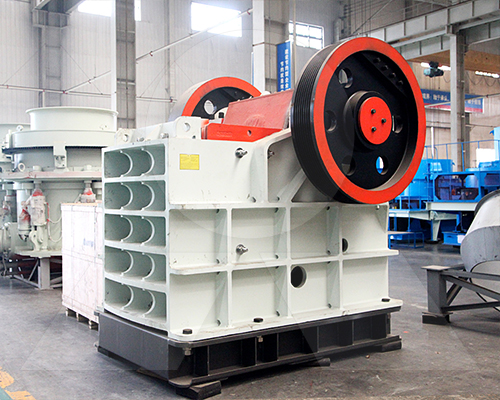The Role of Jaw Crushers in the Cement Industry
Jaw crushers have long been integral to various industries, particularly in cement production. Their ability to handle hard, abrasive materials with ease makes them invaluable in the processing of raw materials essential for cement manufacturing. This article explores the pivotal role that jaw crushers play in the cement industry, highlighting their benefits, applications, and impact on efficiency and productivity.
Introduction to Jaw Crushers
Jaw crushers are mechanical devices that use compressive force to break down large materials into smaller, more manageable pieces. This is achieved through two plates, one stationary and one moving, that create a V-shaped cavity where the material is crushed. This method of crushing is particularly effective for hard and abrasive materials, making jaw crushers ideal for processing the raw materials used in cement production.
Key Features of Jaw Crushers
- High Crushing Capacity: Jaw crushers are known for their high capacity to crush large volumes of material efficiently. This capability is crucial in the cement industry, where large quantities of raw materials such as limestone, clay, and shale need to be processed.
- Robust Design: Constructed from high-quality materials, jaw crushers are designed to withstand the harsh conditions of the cement industry. Their robust construction ensures long-term durability and reliability, minimizing downtime and maintenance costs.
- Versatility: Jaw crushers can handle a wide range of materials with varying degrees of hardness and abrasiveness. This versatility makes them suitable for different stages of the cement production process, from primary crushing to the preparation of materials for further processing.
- Consistent Output Size: The adjustable nature of jaw crushers allows operators to control the size of the output material. This consistency is critical in ensuring that the raw materials meet the specific requirements for cement production.
- Energy Efficiency: Modern jaw crushers are designed to be energy-efficient, reducing operational costs and environmental impact. Their efficient crushing mechanism minimizes energy consumption while maximizing output.
Economic and Environmental Impact
The application of jaw crushers in the cement industry offers significant economic benefits. Their high crushing capacity and efficiency lead to cost savings in terms of energy consumption and labor. Additionally, the robust design and durability of jaw crushers reduce maintenance costs and increase operational efficiency.
From an environmental perspective, jaw crushers contribute to sustainable cement production. Their energy-efficient design reduces greenhouse gas emissions, and their ability to produce consistent material sizes minimizes waste. Furthermore, by enabling the recycling of construction waste, jaw crushers support environmentally friendly practices in the cement industry.
Applications in the Cement Industry
- Primary Crushing: Jaw crushers are primarily used for the initial stage of crushing raw materials in cement plants. They reduce large rocks and boulders to smaller, manageable sizes, preparing them for further processing in crushers, mills, and kilns.
- Material Preparation: In addition to primary crushing, jaw crushers are used to prepare raw materials for other stages of the cement production process. This includes breaking down materials into specific sizes required for the efficient operation of mills and other equipment.
- Recycling and Reusing: Jaw crushers are also used in the recycling of construction waste, such as concrete and bricks, which can be repurposed as raw materials in cement production. This not only reduces waste but also lowers the demand for natural resources.
Conclusion
Jaw crushers are essential to the cement industry, offering a combination of high efficiency, versatility, and durability. Their ability to handle large volumes of hard, abrasive materials makes them ideal for processing the raw materials needed for cement production. By enhancing productivity and ensuring consistent quality, jaw crushers play a crucial role in the economic and environmental sustainability of the cement industry. As the demand for cement continues to grow, the importance of jaw crushers in the production process will only increase, supporting the development of more efficient and sustainable practices in the industry.
- > Cone Crusher Application in Zambian Copper Mines
- > Jaw Crushers for Quarrying: Power, Efficiency, and Durability
- > The Role of the Jaw Crusher in African Copper Mining Projects
- > Portable Crushers for On-Site Recycling: Benefits, Applications, and How to Choose
- > Colombian-Made Mobile Impact Crusher
- > Common Issues with Vibrating Screen Bodies and Their Solutions
- > Multi-Cylinder Hydraulic Cone Crusher for Hard Granite Crushing
- > Roll Crusher 100TPH: Efficient Crushing Solution for Medium-Scale Operations
Hot Product


Online




Message

